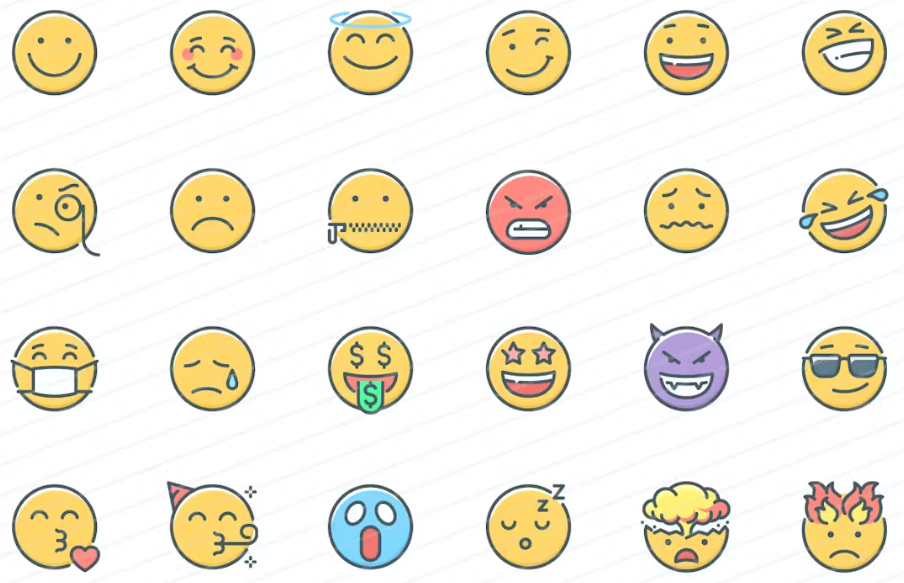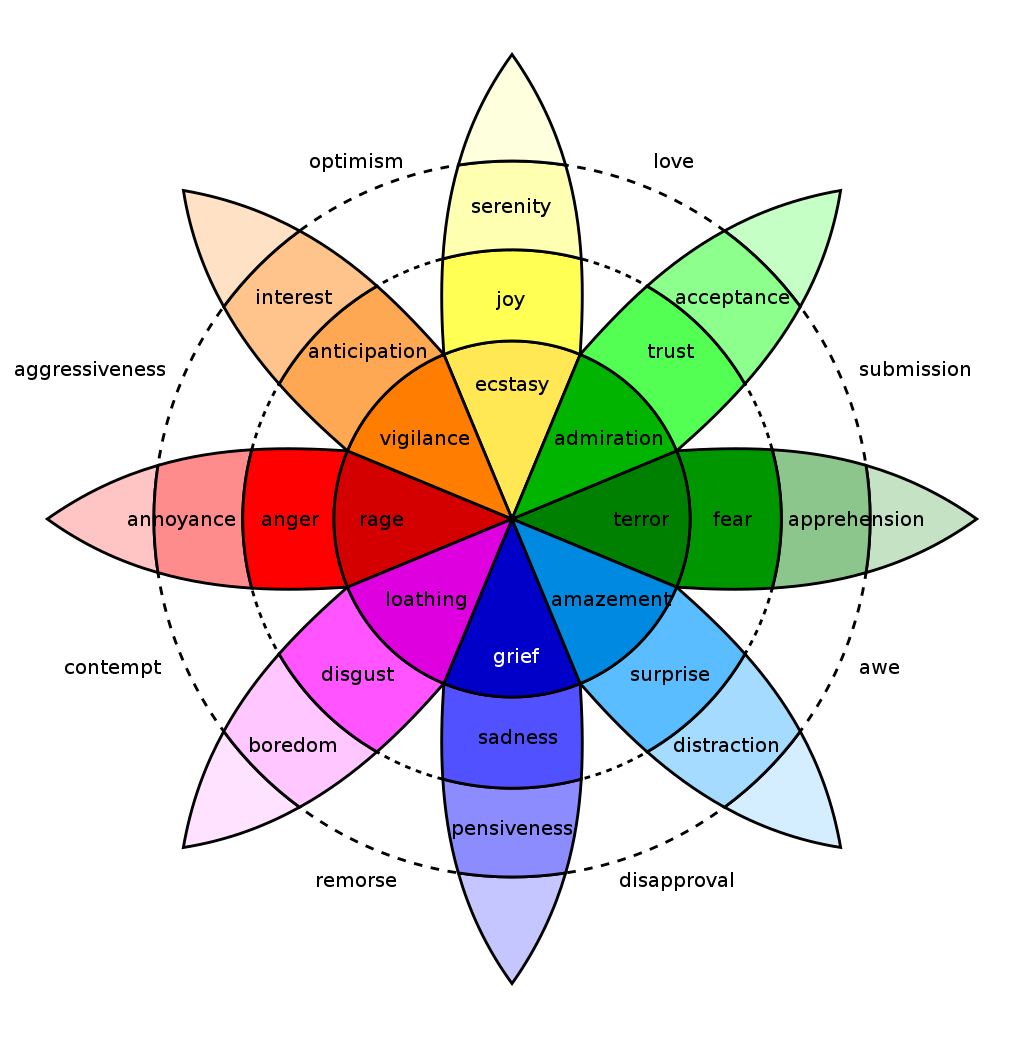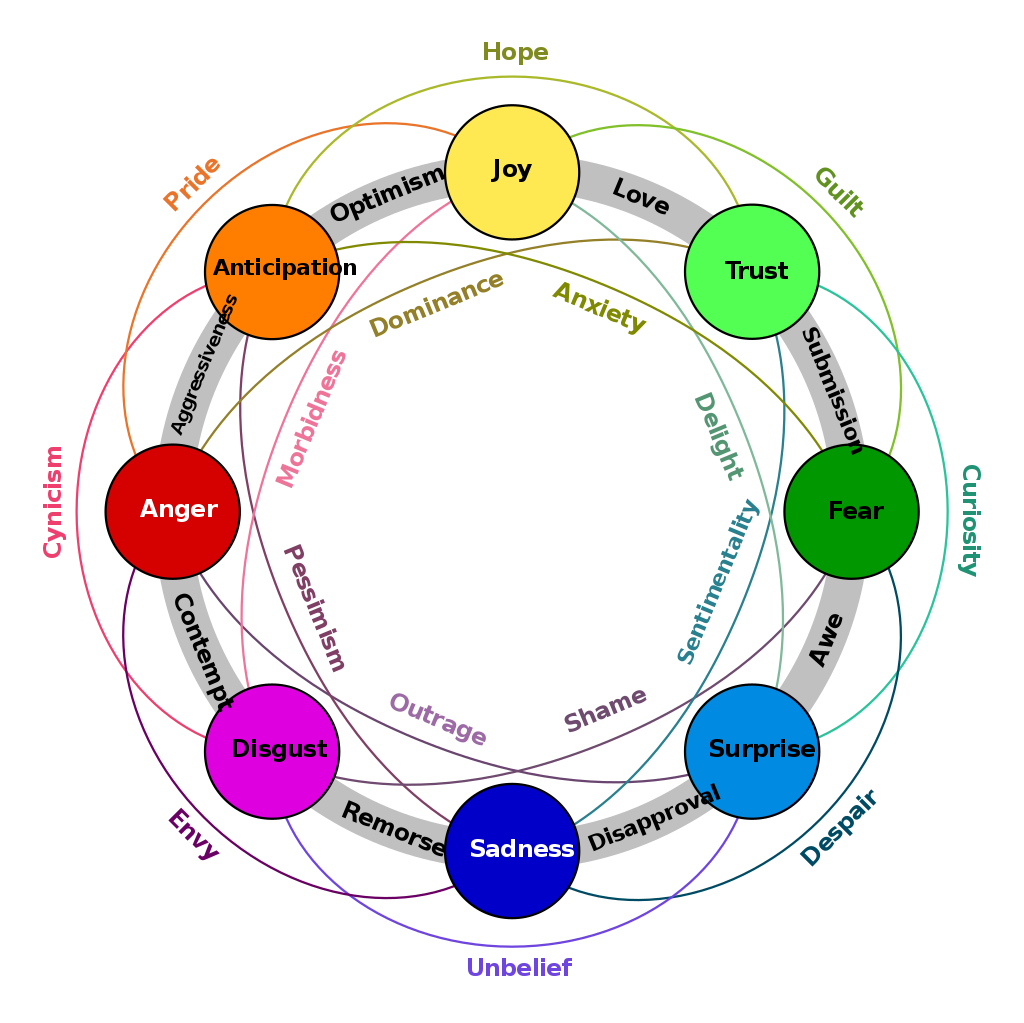Emotions

Emotions are the subjective experience of the brain's neurochemical learning processes. Every emotion corresponds to a different type of evolutionary lesson that are necessary for people to survive, especially within a complex social group.
“One ought to hold on to one's heart; for if one lets it go, one soon loses control of the head too.” -Friedrich Nietzsche
Understanding our Emotions is fundamental to understanding ourselves, our motivations, and our reactions to life events.
Creating the Emotions You Desire
In order to effectively create the life you want, you must be able to recognize the emotions that you feel, the external and internal stimuli that trigger them, and develop methods for redirecting negative emotions towards productive ends. Without these abilities, you become a passenger on your own ship, being tossed about by emotional rough seas and unable to correct the course to minimize the damage or avoid the storm altogether.
New Year’s morning—
everything is in blossom!
I feel about average.
You must alter your own incentives to make yourself do the things you want to do.
See Emotional self-regulation.
The 10% Happier podcast is full of great advice for emotional regulation. Ethan Kross' book Shift is full of practical wisdom for managing emotions.
Jenny Taitz offers practical recommendations using Cognitive Behavioral Therapy techniques to help you reduce stress, deal with anger, rumination, and other negative emotional habits.
The Stoics and Buddhists thought a lot about how to master our emotions. Here's some advice from them.
Culture Shapes Emotional Expectations
Your culture and belief system have a huge impact on the emotions you experience, because these systems tell you a lot about what emotions to expect in any given situation.
A prime example of this is the guilt that people feel when they express sexual desire in a culture of repression. When you are constantly told that lust is evil, and any desire outside of a heterosexual, monogamous marriage is sinful, and that having lust in your heart is just as bad as adultery, of course you are going to feel guilty when your natural urge to reproduce presents itself. Are the feelings of guilt a natural part of our moral foundations? Or is it simply a learned response taught by religion? Or is there a natural response that is being enhanced by the belief?
It makes sense that there would be a natural jealousy and guilt response to sexual infidelity in the context of a relationship, since this involves taking something desired (affections) from one person and giving it to another. Guilt is an empathetic response to hurting another person, and jealousy is wanting something someone else has.
The taboo against premarital sex associates this guilt response with all sex, even internalized desire. Of course this is going to dramatically increase how often you feel that emotion! But there is no innate, universal reason for you to feel guilty as a single person who finds another person attractive. That emotional experience is purely cultural, not natural. The question is, does that benefit utilitarian happiness or is there a better way to encourage sexual fidelity and avoid addiction?
Abrahamic religions tends to use moral absolutes when it comes to sexuality. It recognizes that there can be many consequences to infidelity and promiscuity, from diseases to jealousy and community disruption, to inheritance law. Single parenthood is a big pain in the ass, and for much of history it was completely unfeasible. All good reasons to discourage people from sleeping around. But is the cost in guilt and lost enjoyment of sexual pleasure worth the benefit? Is there a better way to avoid the consequences of free love?
The consequences page explores the impact that advances in technology have on the "greatest good" calculation. With birth control and penicillin, disease and unwanted pregnancy can mostly be avoided. So what is the benefit of all that guilt now?
Providing a new model for sexual morality is beyond the scope of this section.
By deconstructing the emotional cause and effect of our beliefs, and reconsidering them in light of their evolutionary and social purpose, we can revise our cultural norms to better promote happiness and well-being.
The God Concept
The unique perspective and biggest insight into emotional regulation that metaculture proposes is the notion of the god concept. By associating god with everything that exists, as well as the greatest good that we can conceive of (omnibenevolence), a neural shortcut between any external event and our pleasure center is created. This provides automatic optimism and happiness for the believer, who is able to see good in all things, and experience life through the lens of positivity.
Thoughts Are Loops
Feedback loops also provide perspective and understanding when it comes to human emotions. Negative thoughts can inhibit our ability to function, causing us to make mistakes and fail to achieve our goals, which leads to more negative thoughts and an even greater inhibition of ability. When allowed to spiral unabated, this leads to deep depression cycles that can be hard to break.
Likewise, love and happiness can beget more love and happiness. When we are filled with positive emotions we share that joy with others, and they become more willing to share their joy in return. See karma.
Breaking the feedback loop of emotion is possible, for example when you make a joke during an argument, force yourself to do an activity you enjoy when you are sad, or pull out your red flags on a date that was going really well until that moment. Granted you don't actually want to break a positive emotional feedback loop on purpose, but it happens all the time.
Emotion Maps
These images by psychologist Roger Plutchik show the full spectrum of emotions and their relations to each other. [1]
"The way I see it, if you want the rainbow, you gotta put up with the rain." -Dolly Parton


Emotional Podcasts
Some great podcast episodes dealing with the science of emotions.
- What Are Emotions?
- Decoding Emotions
- Where Do Feelings Come From?
- The Benefits of Mixed Emotions
- What's Better Than Being Happy?
- Where Do Feelings Come From?
- The Feeling That Moves Us Forward
- When I Feel What You Feel
- A Better Way to Worry
- Afraid of the Wrong Things
- Fear Less
- What We Gain from Pain
Emotional Videos
Videos that explain or evoke emotions.
A Pixar movie isn't necessarily the best way to learn about the neuroscience of emotions, but they are a good way to experience them!
Emotional Music
The ability of music to evoke an emotional response is one of the main reasons we like it. The emotional impact of these country songs can be significantly enhanced by knowing the stories behind them. Read about the story of Hurt and the listen to the King of Tears podcast from Malcolm Gladwell and unlock a whole new emotional level with these songs.
If that got you down, here's a pick-me-up!